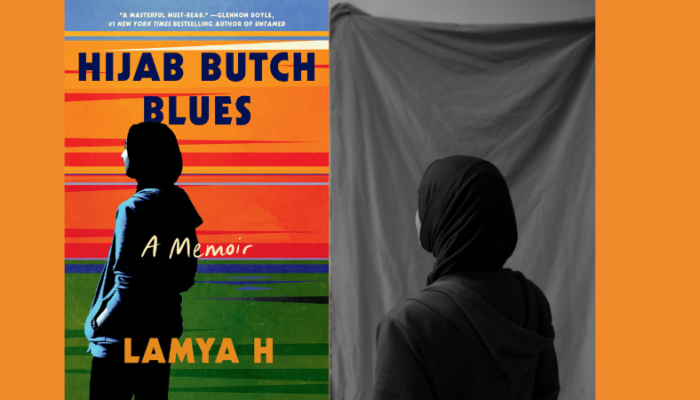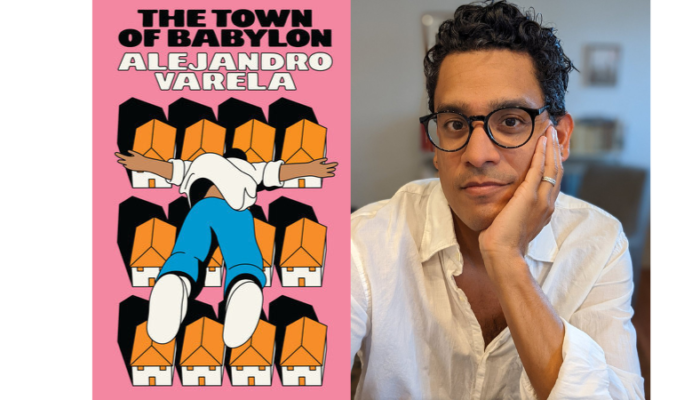I was wasting time online the other day, thinking about writing this essay on what the legacy of José Esteban Muñoz means to me- a person who never knew him, but experiences a synapses changing euphoria when I read his work. Online, I came across a picture of a friend in an airplane. They - gender ambiguous, creature-like, with their wildly colored hair and their face painted neon- tongued their lip in the direction of their neighbor, a regal transwoman. Behind these two, another happy-looking queer (the only other figure in the picture) winked into the camera. For a moment, I allowed myself to daydream that the entire plane was filled with queers. I imagined an aircraft hurtling 500 miles per hour, 35,000 feet above the earth, where every being chose their own unique gender and performed it without inhibition. Then I opened Muñoz’s Cruising Utopia and underlined the first sentence: “Queerness is not yet here.”
Muñoz takes queerness as the wilderness of identity. He captures ephemeral moments where queerness exposes itself to the present. Drawing on Ernst Bloch, he defines utopias: “They are the hopes of a collective, an emergent group, or even the solitary oddball who is the one who dreams for many.” Utopia is a blue print for the future, if we imagine past the definitions of sex, gender, sexuality, race, nations; if we peer past the centuries-old walls that hold us in, we glimpse where we want our plane to land.
Apogee is, in many ways, about futurity. Identity politics as a whole exist because the present we want- a present where a persons identity is not tied to systems of power, or subjected to the dull knife of normativity- is not yet here. It is an absolute honor for all the Apogee staff to pay homage to the late, brilliant Muñoz by reprinting “A Body: Approaching Aviance” excerpted from Cruising Utopia (New York University Press 2009) in Issue 3, and to have Rebecca Sumner Burgos, a close friend and co conspirator of Muñoz write an essay on the “ferocious friendship” they shared.
“A Body: Approaching Aviance” captures the particular genius of Muñoz’s power’s of observation woven into critical theory. Kevin Aviance is a dancer who has performed all over the world and often in gay nightclubs that were frequented by Muñoz. The gender that he performed struck Muñoz as revolutionary, or perhaps otherworldly: Utopian. Muñoz describes Aviance:
“Imagine the relief these gym queens feel as Aviance lets himself be both masculine and feminine, as his fabulous and strange gestures connote the worlds of queer suffering that these huddled men attempt to block out but cannot escape, the pleasures of being swish and queeny that they cannot admit to in their quotidian lives…. his performance is something that is instructive, that recodifies signs of abjection in mainstream queer spaces-blackness, femininity/ effeminacy-and makes them not only desirable but something to be desired.”
There is another side to this wonderfully subversive future vision: the present. Muñoz wrote that “the here and now is a prison house.” Aviance himself survived a hate crime assault on the streets of New York in 2006. (I am not trying to cast Aviance in the role of victim, by any means. Despite having his jaw wired shut for a month, along with other injuries, he insisted on continuing with his scheduled appearances.) Since 2010, anti-gay hate crimes have been on the rise in NYC. According to a recently released report by the Anti-Violence Project, anti-gay hate crimes in NYC increased by 27% during 2013. This is the largest one-year increase ever reported.
The report also shows that nationally, 90% of all anti-gay homicides were people of color, more than two thirds of which were transgendered women. Transgendered women of color were also seven times more likely to experience physical violence during police interaction. Hate crimes are an outward symptom of systemic violence against queer people, particularly queer people of color. They do not tell us how many queer and transgendered people are discriminated against while trying to find housing, employment, or appropriate medical care. The here and now is a prison house; there is no equivocating.
However, we can articulate our present and create strategies for moving forward. Perhaps the best defense is our queer families, which fortify us until our future is our own. Many thanks to R.Erica Doyle, and Jorge Ignacio Cortiñas (Cortiñas wrote an incredible homage to Muñoz with D.L. Alvarez here), who introduced me to Rebecca Sumner Burgos. Sumner Burgos agreed to share some thoughts and memories about Muñoz. Her essay landed in my inbox after I had already told myself to go to bed, and I was just turning off the light. I read it anyway. A few minutes later I was out of bed, sitting at the kitchen table, my mind fully awakened by the intensity of her writing.
The story that she tells bears witness to the beautiful and difficult kinship she and Muñoz shared. She writes, “Like the analysis José offers of Kevin Aviance’s performances, we tried to recodify signs of abjection and to access the pathos-the pleasure and pain-contained in our lives. Through our friendship, we turned abjection into triumph and survival.” I finished her essay with a profound sense of intimacy, a warm rage, and a gratefulness for the sometimes dysfunctional, sometimes transcendent families that we forge.
Back to the question of legacy… Ideas are living organisms, and Muñoz is well embedded in the genealogy, in the very chromosomes, of how we and future generations (whoever they are) think of gender, queerness, Latinidad, performance and the intersections therein. The writings of Muñoz have pushed me and countless others to observe and enact imaginative liberation. Do I, do we all, have our eyes and our minds open to capture those passing moments when a blue print for the future materializes? The moments where we, or someone we encounter are unafraid to try liberation, must be hoarded, studied, reenacted, reimagined, furthered. Muñoz reminds me that despite the enormous forces that are always threatening to tear us down, visions of utopia proliferate and are growing all around us.
Photo credit: D-L Alvarez
Thank you to New York University Press for permission to reprint “A Body: Approaching Aviance” in Issue 3.
José Esteban Muñoz (1967- 2013) remains an acclaimed critical theorist in the areas of Performance Studies, Aesthetics, Queer and Cultural Theory. He authored Cruising Utopia: The Then and There of Queer Futurity (NYU Press), Dissidentifications: Queers of Color and the Performance of Politics (University of Minnesota Press), and many more.
Rebecca Sumner Burgos first appeared on film in “Latin Boys Go To Hell” directed by Ela Troyano in 1996. Sumner Burgos began performing theater with Carmelita Tropicana in “Chicas 2000″, which premiered at P.S. 122 in 1997. From 1998 to 2007, she worked as a performer with Big Art Group, touring internationally with the plays “Shelf Life,” “Flicker,” “House of No More,” and “Dead Set #2 & #3.” She is also a choreographer and dancer with the dangerous downtown dance troupe, the Dazzle Dancers. With José Muñoz and Ana Margaret Sánchez, Sumner Burgos formed the time-transcendent, “chilling social realist” performance collective known formerly as Coco Frio, with whom she performed in such soul-destroying pieces as “The Ballad of Sexual Malignancy” and “Raison d’Etre”. She currently works as a translator in San Juan, Puerto Rico.
The writings of José Esteban Muñoz and Rebecca Sumner Burgos are featured in Apogee Journal Issue 3. Purchase your copy here.




